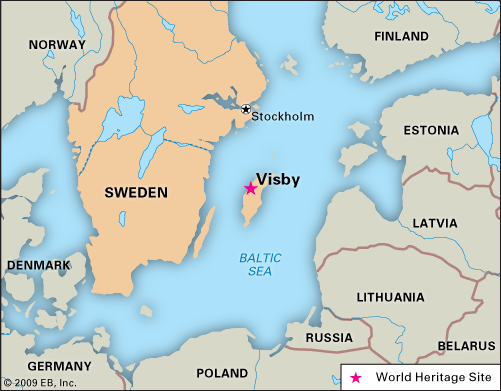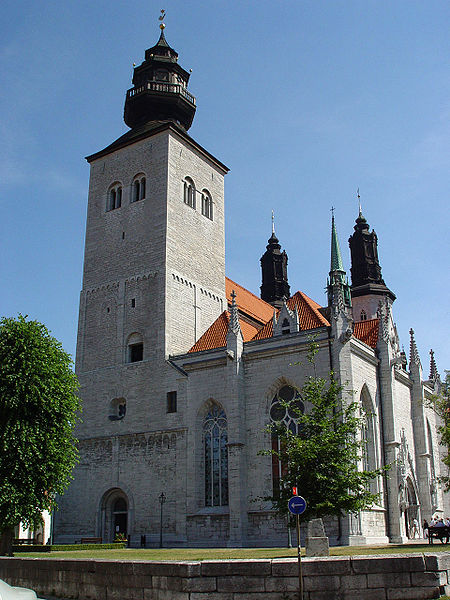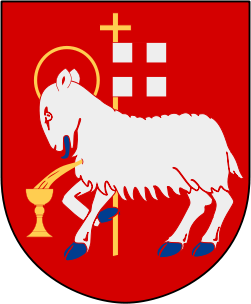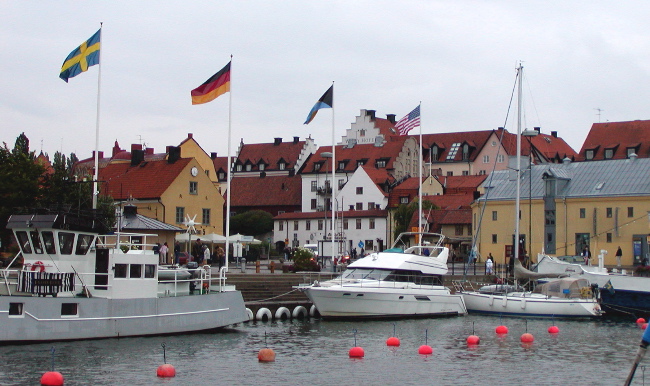<Back to Index>
- Gotland, Sweden Visby, 22K
PAGE SPONSOR



Visby is a locality and the seat of Gotland Municipality in Gotland County, Sweden, with 22,236 inhabitants, as of 2005. It is the only locality with historical city status on the island of Gotland; it is arguably the best preserved medieval city in Scandinavia and has been named a UNESCO World Heritage Site. Among the most notable historical remains are the 3.4 km (2.1 mi) long stone wall called Ringmuren ("the Ring Wall"), that encircles the city and the old church ruins.
The name "Visby" comes from the Old Norse Vis, (genitive singular of Vi) meaning sacrificial place, and by, meaning "city".
Visby is a popular vacation destination for Scandinavians during the summer and receives thousands of tourists every year.
The earliest history of Visby is uncertain, but it is known to have been a center of merchandise around 900 AD. It was inhabited as early as the Stone Age, probably because of the access to fresh water and a natural harbor.
In the 12th century, Visby Cathedral, dedicated to Saint Mary, was constructed. It was reshaped in the 13th century to its current appearance, and was officially opened in 1225 by the bishop of the Swedish city of Linköping. Several other churches were also constructed in the ensuing centuries. The city flourished, thanks to the German Hanseatic League.
The work on the ring wall was likely begun in the 12th century. Around 1300, it was rebuilt to reach its current height, acquiring the characteristic towers, although some towers were not constructed until the 15th century. The ring wall is still largely intact.
In 1361, Gotland was conquered by Valdemar IV of Denmark and Visby became a Danish city. Important as it was, some setbacks occurred. In 1391, 1394 and 1398, it was taken and plundered by the Victual Brothers, pirates who sailed the Baltic Sea. In 1411, King Eric of Pomerania had the castle of Visborg constructed, and settled himself there for twelve years, during which the city virtually became a pirates nest, and the commerce halted. As of 1470, the Hanseatic League rescinded Visby's status as a Hanseatic town.
In 1525, the final blow came. The merchants of Visby were in a feud with Lübeck in what is now Germany. The Lübeckers burned down all Visby's churches except the cathedral. The ruins have been preserved until this day, adding their gravity to the modern city.
Gotland was again conquered by Sweden in 1645 at the Treaty of Brömsebro,
after 300 years of Danish rule. The city developed slowly as things
were left as they were. In the mid 18th century, some attempts were made
by Swedish government officials to improve living standards, but little
was accomplished. Not until the early 19th century did Visby once again
attract commerce and a harbor industry. At the same time - 1808 -
Gotland was conquered by Russia, but was peacefully taken back by the
Swedes after only a couple of months.
Some affectionately call Visby the "city of roses and ruins" and natives to the island often just say "town". Whether it lives up to that distinction among other old Swedish cities is debatable.
In the first week of July, Visby is the scene of the Almedalen Week (Almedalsveckan), an important meeting place for everyone involved in Swedish politics. During the week, representatives from the major political parties in Sweden take turns giving speeches in the Almedalen park.
In August, the tourist season
is at its peak. In week 32 from Sunday to Sunday, the annual Medieval
Week (Medeltidsveckan) is held. During this time regularly dressed
tourists are outnumbered by people dressed in Medieval costumes. The
festival started in 1984. There are a variety of events: music, jesters,
theater, a medieval market, jousting tournaments and much more.
Visby is linked to the mainland of Sweden by ferry and by plane. The three - hour ferry arrives from Oskarshamn in Småland and Nynäshamn, near Stockholm. During the summertime, the ferry also runs to Grankullavik on Öland. The ferry is run by Destination Gotland and subsidized by the Swedish government.
Visby Airport is located about 5 km (3.1 mi) north of the city. With 276,000 passengers in 2005, it is the 12th largest airport in Sweden.
Visby gave its name to the 1968 Visby Amendments, which were an amendment of the Hague Rules of shipping law, leading to the Hague - Visby Rules.
Near Visby, there is the static inverter plant for the first HVDC interconnection of a windpark (HVDC Visby – Näs).
Swedish author Mari Jungstedt has set three detective novels, Unseen, Unknown and Unspoken, on the island of Gotland. The principal character, DS Anders Knutas, is based at police headquarters in Visby, and there are numerous descriptive passages of the city and the island.
Hayao Miyazaki noted that Visby is the main visual inspiration for the town in Kiki's Delivery Service, though elements of many other locations were blended in.

